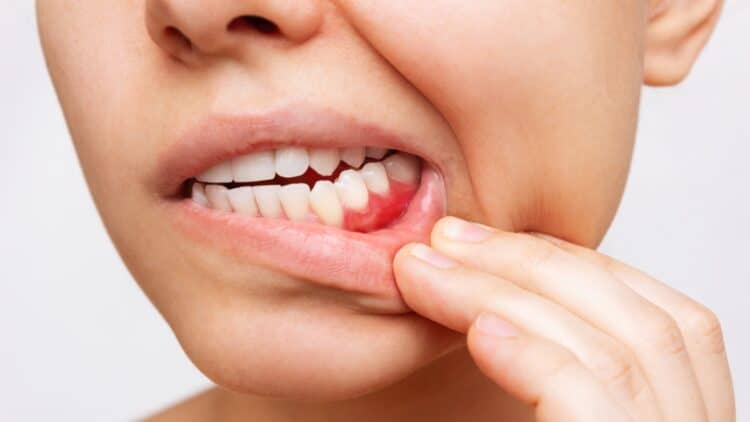Although it may not seem like it, periodontitis is the sixth most common chronic disease in the world. Advanced gum disease brings with it many health problems. According to WHO data from 2022, about 45% of the world’s population suffers from some form of oral disease. Despite being so common, current treatments still have shortcomings. That is why new hope for gum disease has emerged in Brazil.
It is a plant-based chemical compound called Morin, which is a natural flavonoid. It can be found in fruits, teas, and nuts, specifically in apple peels, guava leaves, figs, and almonds. This discovery was made by researchers at the State University of São Paulo (FOAr-UNESP) and published in the scientific journal Archives of Oral Biology (DOI: 10.1016/j.archoralbio.2025.106343).
How do gums become diseased?
This disease begins when biofilm (plaque) accumulates. First, gingivitis occurs, causing bleeding and inflammation, but it is reversible with good hygiene and a visit to the dental hygienist.
However, if the biofilm progresses, the body overreacts (inflammation), destroying the supporting tissue and bone. The end result: tooth loss. This is what we know as periodontitis.
The current problem with treatments for this disease is that, as we produce approximately one milliliter of saliva per minute, the mouth is continuously rinsed naturally; it is very difficult to keep medication in the mouth, as it is quickly eliminated.
Morin, the compound that could revolutionize oral hygiene
For now, in vitro laboratory tests indicate that the compound Morin has high potential as an oral treatment:
- It has antimicrobial properties, making it perfect for fighting pathogenic bacteria.
- It is anti-inflammatory, reducing swelling and minimizing tissue damage.
- It also has antioxidant properties, protecting cells from oxidative stress. Morin is obtained using a spray-drying process (the same method used to make powdered milk). The result is a fine powder that is easy to handle. It is then stored in capsules made of sodium alginate and gellan gum. The aim is to create a “platform” that adheres to the mucosa and teeth, gradually releasing the compound.
For now, the product is designed as an enhancer in oral hygiene treatments for people with reduced mobility—that is, older adults or people with special needs who find brushing difficult without external help. If the compound proves effective, we will most likely see it appear on the market for more customers.
The fight against oral disease
For now, standard treatments for diseases such as gingivitis and periodontitis involve drastic measures: deep cleanings with scaling and root planing; topical or systemic antibiotics; and in more advanced cases, complex surgeries such as gum grafts and bone regeneration.
Morin offers the possibility of avoiding these problems, as it is a natural, inexpensive, and accessible alternative. It does not seem to cause as many side effects as chlorhexidine, which causes changes in taste and tooth staining if used for prolonged periods.
Are there risk factors for gum disease?
It goes without saying that we should brush our teeth thoroughly every day and floss. What few experts admit is that there are other factors that cause your dental hygiene to deteriorate. Some asthma medications prematurely deteriorate tooth enamel, which predisposes a person to tooth decay, even if they eat a low-sugar diet and brush their teeth three times a day.
There is also a genetic predisposition to gum disease. In fact, it is estimated that 30% of the global population may be more susceptible. Genetics does not mean that you are destined to suffer from this disease without question, but you should take it as a warning to take better care of yourself.
Apart from brushing, flossing and using a waterpik everyday, things like a Vitamin-C rich diet full of antioxidants, drinking plenty of water and avoiding processed sugars and tobacco will help maintain buccal health.

